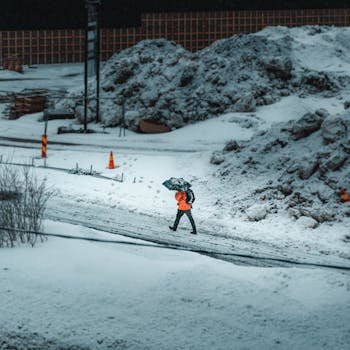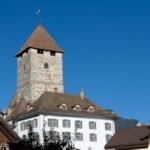Decoding North Korea: Beyond the Headlines
North Korea, officially the Democratic People’s Republic of Korea (DPRK), remains one of the most enigmatic and isolated nations on Earth. Beyond the sensational headlines and often-stereotypical portrayals, lies a complex society with a rich history, a unique culture, and a population navigating daily life under extraordinary circumstances. This guide aims to provide a comprehensive and nuanced understanding of North Korea, exploring its history, political system, economy, culture, and the challenges it faces. We’ll delve into the realities of life for ordinary citizens, examine the country’s relationships with the rest of the world, and offer insights into potential future developments. Get ready to unpack the layers of this fascinating and often misunderstood nation.

A Glimpse into North Korea’s History
From Ancient Kingdom to Divided Nation
The Korean peninsula boasts a history stretching back millennia. Understanding North Korea requires acknowledging its shared history with South Korea. The ancient kingdom of Joseon, lasting for over five centuries, laid the foundation for Korean culture and identity. However, the 20th century brought immense upheaval. Japanese colonization (1910-1945) deeply impacted the peninsula, followed by liberation after World War II and the subsequent division along the 38th parallel, setting the stage for the Korean War.
The Korean War and its Lasting Impact
The Korean War (1950-1953) was a devastating conflict that solidified the division between North and South Korea. The war, involving major powers like the United States and China, resulted in a stalemate and an armistice agreement, but no formal peace treaty. This unresolved conflict continues to shape North Korea’s political and security landscape. The war instilled a deep sense of vulnerability and a siege mentality that persists to this day.
The Rise of the Kim Dynasty
Following the war, Kim Il-sung established a communist regime in North Korea, built upon the Juche ideology of self-reliance. This ideology, while initially aimed at economic independence, has evolved into a justification for the regime’s isolation and authoritarian rule. Kim Il-sung’s personality cult became deeply ingrained in North Korean society, a tradition continued by his son, Kim Jong-il, and grandson, Kim Jong-un. This dynastic succession is unique in the communist world and remains a defining characteristic of North Korea.
Inside North Korea: Politics, Economy, and Daily Life
The Political System: Authoritarian Rule
North Korea operates under a highly centralized, single-party system led by the Workers’ Party of Korea (WPK). The Supreme Leader, currently Kim Jong-un, holds absolute power. Elections are held, but they are largely symbolic, with only one candidate on the ballot. Freedom of speech, assembly, and religion are severely restricted. The government maintains a tight grip on information and controls all aspects of life.
The Economy: A Struggle for Survival
North Korea’s economy is centrally planned and heavily reliant on state-owned enterprises. Decades of mismanagement, international sanctions, and natural disasters have led to chronic food shortages and economic hardship. While there has been some limited economic reform in recent years, the government remains hesitant to embrace market-based reforms that could threaten its control. Approximately 40% of the population is estimated to be undernourished, according to the United Nations. Despite the economic challenges, North Korea has invested heavily in its military, particularly its nuclear weapons program.
Daily Life: Navigating Restrictions and Hardships
Life in North Korea is characterized by strict social controls and limited freedoms. Citizens are subject to constant surveillance and indoctrination. Access to information from the outside world is severely restricted. Travel within the country is also heavily regulated. Despite these challenges, North Koreans are resilient and resourceful. Many engage in informal economic activities to supplement their income. A growing awareness of the outside world is slowly spreading, thanks to smuggled media and cross-border trade.
- Access to the internet is limited to a select few.
- Clothing styles are often dictated by the state.
- Social mobility is severely restricted.
North Korea and the World: Isolation and Nuclear Ambitions
International Relations: A History of Tension
North Korea’s relationship with the international community is fraught with tension. Its nuclear weapons program and ballistic missile tests have drawn condemnation and sanctions from the United Nations and individual countries, including the United States, South Korea, and Japan. While there have been periods of dialogue and negotiation, progress towards denuclearization has been slow and inconsistent. North Korea claims its nuclear weapons are a deterrent against potential aggression from the United States.
The Nuclear Program: A Major Security Threat
North Korea’s pursuit of nuclear weapons is a major security concern for the region and the world. The country has conducted several nuclear tests and has developed ballistic missiles capable of reaching targets in South Korea, Japan, and potentially the United States. The international community has responded with sanctions aimed at curbing North Korea’s nuclear ambitions, but these measures have had limited success.
The Future of North Korea: Challenges and Opportunities
The future of North Korea remains uncertain. The country faces numerous challenges, including economic hardship, political repression, and international isolation. However, there are also potential opportunities for change. Increased engagement with the outside world, economic reforms, and a shift in leadership could lead to a more open and prosperous North Korea. The path forward will depend on the decisions made by the North Korean leadership and the willingness of the international community to engage in constructive dialogue.
Understanding the People of North Korea
Beyond the Stereotypes: A Human Perspective
It’s crucial to remember that the people of North Korea are not a monolithic entity. They are individuals with hopes, dreams, and aspirations, just like people anywhere else in the world. While they live under a repressive regime, they are not necessarily supporters of it. Many are simply trying to survive and provide for their families. Understanding their perspective is essential for fostering empathy and promoting positive change. The narrative surrounding North Korea often focuses on the regime, but it’s vital to acknowledge the humanity of its citizens.
Cultural Traditions: Preserving Identity
Despite the political constraints, North Korea has preserved many of its cultural traditions. Traditional music, dance, and art forms continue to be practiced and celebrated. The Korean language and cuisine remain central to North Korean identity. These cultural elements provide a sense of continuity and connection to the past. The government often uses culture as a tool for propaganda, but it also reflects a genuine appreciation for Korean heritage.
Connecting with North Korea (Indirectly)
While direct contact with North Korea is difficult, there are ways to learn more about the country and its people. You can support organizations that provide humanitarian aid to North Korea. You can also follow news and analysis from reputable sources that focus on North Korea. By staying informed and engaged, you can contribute to a more nuanced understanding of this complex nation. Consider supporting NGOs that work to improve human rights in North Korea and promote cultural exchange where possible. This indirect engagement is a valuable way to make a difference.
Conclusion: A Call for Understanding and Engagement
North Korea presents a complex and multifaceted challenge to the international community. Understanding its history, political system, economy, and culture is crucial for developing effective strategies for engagement. While the challenges are significant, it is important to remember the humanity of the North Korean people and to work towards a future where they can enjoy greater freedom and prosperity. By staying informed, supporting humanitarian efforts, and advocating for positive change, we can all contribute to a more peaceful and just world. What steps will you take to learn more and make a difference? Share your thoughts in the comments below! Learn more about related geopolitical issues, such as the Korean War and its impact on the region, by exploring reputable sources and engaging in informed discussions.








